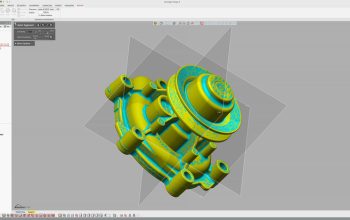Introduction
Artificial Intelligence (AI) has made significant strides across various industries, and one area where it is showing remarkable potential is healthcare. With its ability to analyze vast amounts of data and recognize patterns, AI is revolutionizing patient care, leading to improved diagnostics, personalized treatment plans, and enhanced overall healthcare outcomes. In this article, we will explore the transformative impact of AI in healthcare and the ways it is shaping the future of patient care.
1. Early and Accurate Diagnostics
One of the key areas where AI is making a profound difference is in the field of diagnostics. Traditional diagnostic methods often require time-consuming and labor-intensive processes, leading to delayed results. AI-powered diagnostic tools, such as image recognition algorithms and natural language processing, enable faster and more accurate diagnosis.
For instance, AI algorithms can analyze medical images like X-rays, MRIs, and CT scans, helping radiologists detect abnormalities and potential diseases more efficiently. Moreover, AI can interpret pathology reports and extract essential information, assisting pathologists in identifying cancerous cells or other abnormalities with greater precision.
2. Personalized Treatment Plans
Every patient is unique, and their response to treatments can vary significantly. AI plays a crucial role in developing personalized treatment plans tailored to individual patients’ needs. By analyzing a patient’s medical history, genetic makeup, lifestyle choices, and other relevant factors, AI algorithms can recommend the most effective treatments and medications.
Furthermore, AI-powered predictive analytics can forecast disease progression and potential complications, allowing healthcare providers to intervene proactively and prevent adverse outcomes. This personalized approach to treatment not only enhances patient outcomes but also optimizes resource utilization within healthcare systems.
3. Virtual Health Assistants
AI-powered virtual health assistants are transforming the way patients interact with healthcare services. These virtual assistants can handle routine patient queries, provide medication reminders, and offer general health advice based on medical databases and guidelines.
Virtual health assistants have proven to be particularly beneficial for elderly patients or those with chronic conditions who require constant monitoring and support. They help improve patient engagement, enable self-management, and alleviate the burden on healthcare professionals, allowing them to focus on more critical and complex cases.
4. Drug Discovery and Development
The process of drug discovery and development is a time-consuming and costly endeavor. AI is revolutionizing this area by significantly expediting the drug discovery process. AI algorithms can analyze vast molecular datasets, predict drug interactions, and identify potential drug candidates with a higher probability of success.
By using machine learning models, researchers can rapidly screen and evaluate thousands of compounds, narrowing down the selection to the most promising ones for further testing. This not only accelerates the drug development timeline but also reduces the associated costs, making medication more accessible to patients in need.
5. Enhanced Data Security and Privacy
While AI brings many advantages to healthcare, it also raises concerns about data security and patient privacy. As AI systems process vast amounts of sensitive patient data, ensuring robust cybersecurity measures is of utmost importance.
AI technologies are continually evolving to enhance data encryption, prevent unauthorized access, and protect patient information from potential breaches. Striking the right balance between innovation and data protection is crucial to maintaining patient trust in AI-driven healthcare solutions.
Conclusion
The integration of AI in healthcare is a groundbreaking advancement that holds the potential to revolutionize patient care as we know it. From early and accurate diagnostics to personalized treatment plans and virtual health assistants, AI is transforming the healthcare landscape in unprecedented ways. However, it is essential to approach this revolution responsibly, ensuring data security, ethical use of AI, and collaboration between healthcare professionals and AI systems to provide the best possible outcomes for patients worldwide. As AI continues to advance, we can look forward to a future where healthcare is more accessible, efficient, and effective, benefiting patients and healthcare providers alike.




